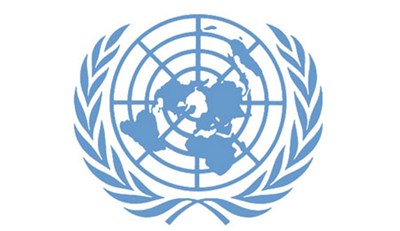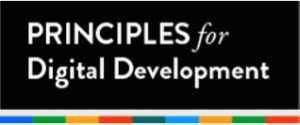
It was 20 years ago today that I began my first job with the United Nations. Specifically, I was a program specialist (P3), directing the UN’s Online Volunteering service and co-managing the United Nations Technology Service, both hosted at the UN Volunteers headquarters in Bonn Germany (UNV is a division of the UN Development Programme – UNDP).
It was a position I held for four years and which was the start of a new international career for me.
In the last few years, I’ve been working to preserve the many resources I developed or helped develop as a part of this incredible opportunity, all of which were disappearing from the World Wide Web. Here are those resources:
Lessons from the UN’s Online Volunteering service.
In directing the UN’s platform for agencies working in and for the development world to recruit online volunteers, I carefully documented what worked and what didn’t, challenges, successes and more. I turned much of that into web pages on the onlinevolunteering.org website itself; when the site was changed a few years after I left, those resources and data were deleted. I’ve reproduced them here on my own web site.
United Nations Technology Service (UNITeS)
This was a global volunteer initiative created by Kofi Annan in 2000 and hosted at UNV. UNITeS both supported volunteers applying information and communications technologies for development (ICT4D) and promoted volunteerism as a fundamental element of successful ICT4D initiatives. During the tenure of UNITeS, the UNV program helped place and/or support more than 300 volunteers applying ICT4D in more than 50 developing countries, including 28 Least Developed Countries (LDC), making it one of the largest volunteering in ICT4D initiatives. The activities of UN Volunteers, as well as those by tech volunteers working through NetCorps, CompuMentor, the Association for Progressive Communications, Australian Volunteers International, NetCorps, Voluntary Service Overseas (VSO) and Volunteers in Technical Assistance (VITA), were tracked and promoted by UNITeS as part of its overall mission. Part of the UNITeS mandate was to try to track all of the various tech volunteering initiatives and encourage them to share their best practices and challenges with each other. I was one of the managers of this initiative, developing the web materials and writing about what ICT4D volunteers were doing, as well as managing the UNITeS online community.
Handheld computer technologies in community service/volunteering/advocacy
This was a pioneering article, published in October 2001. It provides early examples of volunteers/citizens/grassroots advocates using handheld computer/personal digital assistants (PDAs) or phone devices as part of community service/volunteering/advocacy, or examples that could be applied to volunteer settings. It was originally part of the UNITeS online knowledge base. It anticipated the popularity of smartphones and #apps4good, talking about these concepts long before they had these names.
UNITeS Contributions to the UNESCO Multimedia Training Kit
The UNV staff managing the UNITeS initiative was invited to prepare a module on volunteers in telecentres and community media organizations for the UNESCO Multimedia Training Kit (MMTK). The module includes a slide show presentation, exercises, case studies and trainer notes. I was the primary author of the UNITeS contribution.
What Was NetAid?
NetAid was an anti-poverty initiative, started as a joint venture between UNDP and Cisco Systems. The initiative no longer exists, though a legacy of the initiative, www.onlinevolunteering.org, continues to this day. I oversaw the transition of NetAid to UNV, and also worked to preserve the legacy of the original initiative.
We also had a country and western band in the basement of Haus Carstanjen, but that should really be a separate blog…
Also see:
- My role with the UN in Afghanistan.
- My role with the UN in Ukraine.
- “Jayne, how did you get to work for the UN?!” An answer to a frequently asked question.
- More about me.
- About my consulting services.

